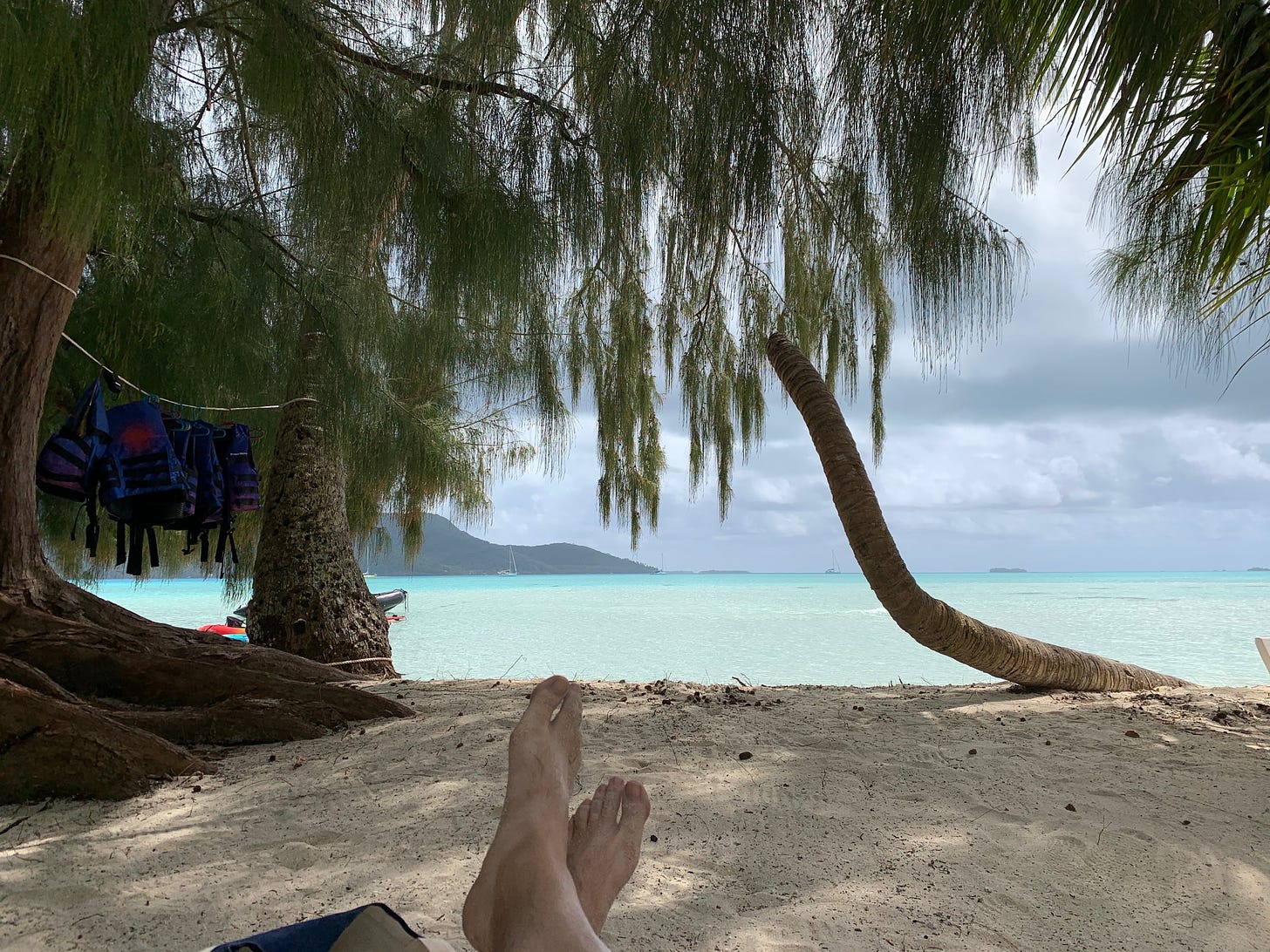The 2022 Midterms and the Happy Republican
This was written two weeks ago. I think it holds up.
[Author’s note: I wrote this column two weeks ago on a flight home from overseas. Just as I was wrapping it up, my computer crashed and I thought the post had been eaten. It turns out, however, that Substack had archived and I just found it - so here it is. In retrospect I think it still works because it helps to explain my state of mind prior to the midterms, but also what happened in the midterms. I’ve amended it with a few editorial notes. Enjoy!]
The hard-working folks here at Drezner’s World have not written anything about the coming U.S. midterms [Obviously, I wrote a few things after I thought this got deleted—ed.]. This has been for a variety of reasons. For one thing, the margins are so close in both the House and the Senate that any one little thing can tip the scales. For another, I have grown warier of trusting polling data — it’s not that I think they are necessarily biased or skewed, it’s that there have been so many shocks over the past ten years that have led to misses that I fear some polls (and analytics based on those polls) are chasing the noise more than the signal. To put it statistically, as I’m updating my priors I’m also widening the possible margin of error based on those polls (Note: if it turns out that all the polls were spot on next month, remember that this column caused it through the logic of the Reverse Mortal Lock).
Still, to my mind the following facts seems clear:
If you rely on fundamentals (economic indicators, presidential popularity, etc.), the Republicans should have a great midterms;
If you rely on the polling, things look somewhat better for the Democrats;
If you rely on the shifts in polling, things look somewhat worse for the Democrats than they did two months ago;
In a lot of pivotal Senate races, neither candidate is polling over 50 percent, which means the outcome remains in doubt;
The candidate quality on the GOP side in many of the high-profile races is, shall we say, less than stellar.
Now might ordinarily be the time to make a prediction, but I’m not going to do that. Instead, I’m taking up my reader challenge to focus on the happy Trump voter, because it’s entirely possible that they will be the pivotal voting (or non-voting) group in this election.
To explain this group, you have to understand something very important: in September, my wife and I celebrated our 25th wedding anniversary by going to French Polynesia. We went big on this trip: an overwater bungalow in Tahiti for a few days and then a fancy sailing ship/cruise ship that went to all the major islands. It cost a boatload of money and it was amazing. Seriously, look at this sunset:
These photos were taken with an old iPhone, so you can imagine how everything looked in person.
Why am I bringing this up? Well, one reason is that I can’t stop talking about this trip. My friends and colleagues are sick of babbling about it, so now you’re gonna have hear about it. There may well be future columns about some unrelated topic when this trip will be shoehorned in (“Will Ukraine retake Crimea? That reminds me of something I learned while hiking in Moorea a few month ago. Here, look at this view….”). You’ve been warned.
In this case, however, a side-bonus to the trip was observing the other passengers. Mostly married couples. Nearly everyone was over the age of 50. Predominantly white. Geographically, most folks were from Florida, Texas, Georgia, and Arizona. A mix of professionals and small business owners.
At the risk of other political scientists yelling “ecological inference problem!” at me, I think I’m safe in hypothesizing that there were a healthy fraction of Trump voters on the boat. Well, that and the lady who, unprompted, raved to me about how much she was enjoying Jared Kushner’s book. According to her, it was ‘easy reading” and she was impressed that “he knew so many people!”
Now here’s the thing: the lady who liked the Kushner book was otherwise a delightful human being on this trip (I get it, we were all in French Polynesia, it would have been hard not to be in good mood. Bear with me). So was everyone else on the trip. Just a giant bunch of affluent folks who barely discussed politics at all. Back in the day, many of them would have been called “country club Republicans.”
This gets back to something I said in September:
The group of Trump voters that merit more attention are the ones who are not all that angry. In contrast to the resentments of the #MAGA crowd or the grievances of the pivotal voters, these are people who have voted Republican all their lives and have not changed with Trump. They have not given much thought to this choice either.
Ever since Trump came on the scene, there has been an obsessive focus on two groups who support him: the pivotal swing voters in pivotal states who switched from voting Obama to voting for Trump, and the rabid #MAGA folks who go to all the Trump rallies and believe all the crazy shit that Trump and his toadies say.
They matter, but so does a third group. I suspect that there are a lot of traditional Republican voters who might dislike Trump’s immaturity and incompetency if they think about it, but they mostly do not think about it. It’s background noise to them at this point. To the extent that they do think about politics, they want tax cuts, low inflation, and decent local services. They have enough money to cope with the vicissitudes that have buckled the rest of the country. They don’t want to be yelled at if they use the wrong pronoun. They do not approve of the violence on January 6th but they also don’t think too hard about it.
All else equal, this group will vote for Republicans this year. Inflation is high and to them that sure seems like Biden’s fault. For state-level and U.S. House races, they’ll vote the party line.
There is a caveat, however. To the extent that the more high-profile candidates sound extreme or kooky or not entirely coherent, the happy Republicans who notice will get turned off. It’s not just Democrats: they don’t like getting yelled at by anyone. So maybe they won’t vote in that election, or maybe they’ll decide that they can live with voting for a Democrat. Or maybe they don’t vote at all.
My point is, this group has been neglected in the horse-race coverage. Maybe they matter more than is commonly understood.






I wrote much the same thing after the 2016 election. As it turned out, country club Republicans, along with the Republican intellectual class, lived down to the worst stereotypes the left could imagine for them. At the time, someone who called Mitch McConnell a fascist would have been regarded as misusing a boo-word: now the only question is whether he is an actual fascist or merely a cowardly collaborator with fascism. Here's my piece
https://insidestory.org.au/the-dog-that-didnt-bark/
Wow.